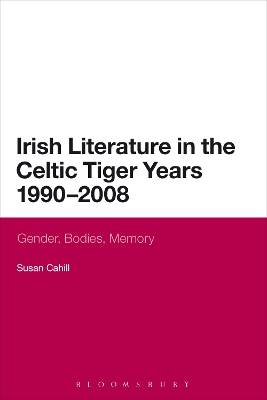Continuum Literary Studies
1 total work
When Irish culture and economics underwent rapid changes during the Celtic Tiger Years, Anne Enright, Colum McCann and Eilis Ni Dhuibhne began writing. Now that period of Irish history has closed, this study uncovers how their writing captured that unique historical moment.
By showing how Ni Dhuibhne's novels act as considered arguments against attempts to disavow the past, how McCann's protagonists come to terms with their history and how Enright's fiction explores connections and relationships with the female body, Susan Cahill's study pinpoints common concerns for contemporary Irish writers: the relationship between the body, memory and history, between generations, and between past and present.
Cahill is able to raise wider questions about Irish culture by looking specifically at how writers engage with the body. In exploring the writers' concern with embodied histories, related questions concerning gender, race, and Irishness are brought to the fore. Such interrogations of corporeality alongside history are imperative, making this a significant contribution to ongoing debates of feminist theory in Irish Studies.
By showing how Ni Dhuibhne's novels act as considered arguments against attempts to disavow the past, how McCann's protagonists come to terms with their history and how Enright's fiction explores connections and relationships with the female body, Susan Cahill's study pinpoints common concerns for contemporary Irish writers: the relationship between the body, memory and history, between generations, and between past and present.
Cahill is able to raise wider questions about Irish culture by looking specifically at how writers engage with the body. In exploring the writers' concern with embodied histories, related questions concerning gender, race, and Irishness are brought to the fore. Such interrogations of corporeality alongside history are imperative, making this a significant contribution to ongoing debates of feminist theory in Irish Studies.
